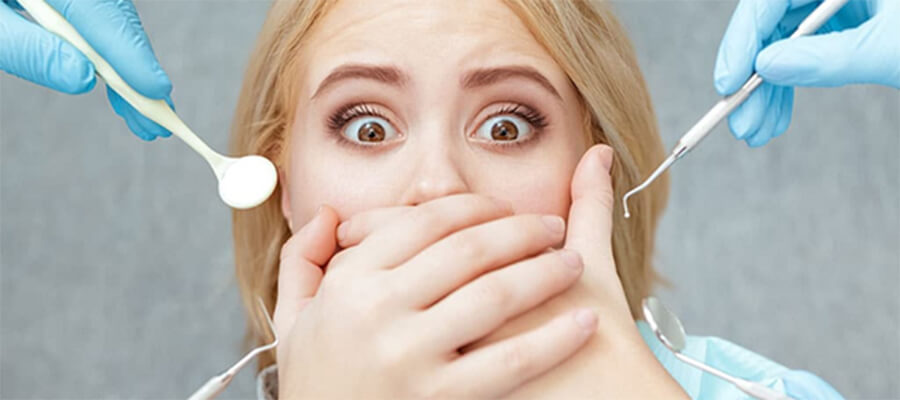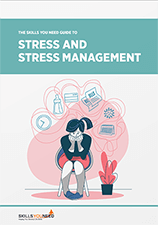Be Strong and Conquer Your Dental Phobia:
10 Super Tips
See also: Avoiding and Managing Stress
More than 50% of people say that they have not been to the dentist in over 10 years, mainly because of dental phobia.
Unfortunately, many people associate visits to the dentist with pain based on personal experience, while other people pick up this phobia from television and the movies. The sounds of drills and the sight of all the different tools on the table only add to this fear.
However, going to the dentist is important as, if you avoid going due to fear, you are only going to require more extensive and painful dental work. Get over your fear and get to the dentist! You know it makes sense. To help, here are some tips on how to get over your dental phobia.

Learn about dental procedures
When you learn about dental procedures and practices, you will feel better when you need to have work done. Read up on whatever treatment or procedure you are prescribed as you will likely find relief in your research. Learning about the work needed and seeing it from a technical or educational viewpoint can give you a different perspective. Plus, most procedures don't hurt quite as much as you might imagine.
Go to a dentist you trust
While it may seem silly, dentists do form a sort of bond with their patients. Get to know your dentist and see how you get along. If you don't like your dentist, you won't have a good experience. Learn about your dentist as well as their credentials. If you don't seem to connect with your dentist, then it might be time to look for another one.
Be honest about your fears
Some people may attempt to disguise their fear, but this may only lead to avoiding the dentist all together. When you schedule your appointment, it's okay to tell the receptionist that you have a bit of anxiety. You should also be open about it with your dentist when you finally meet with them.
Take proper care of your teeth
If you don't want the dentist to have to do major work on your teeth, you should make a point to take good care of them. This means brushing your teeth three times a day and after you eat. You should also floss after every meal. Be mindful to carry dental hygiene supplies with you if you are going to be out for an entire day. You should also try to avoid foods that are known to be bad for teeth, such as soda and sugary snacks. An important part of good dental hygiene is going to the dentist for regular check-ups (aim for every six months).
Schedule the appointment and go
Whether you're afraid or not, you have to go to the dentist. If you want to get over your fears, face them head on. Call your dentist and schedule an appointment. When the day comes, actually go to your appointment. While at the appointment, be sure to communicate with your dentist. Let them know if you need a break or if your anxiety is getting to be too much. Talk to your dentist about the possibility of taking an anti-anxiety medication before appointments.
Go with someone who calms you
Sometimes, it can be helpful for you to bring someone with you. They can act as a support system for you. Make sure you bring someone who has a calming effect on you as opposed to someone who tends to get you worked up. Ask a spouse, relative, or a friend to be with you and help keep you level headed with some kind words and reassuring chat to distract you: talking about your current favorite music or TV show can really help keep your fears at ease.
Music can help
Music is a great way to relax, and using music therapy is an increasingly popular way that allows highly anxious patients to deal with dental anxiety or dental phobia since it encourages them to become calm and relaxed during treatments. Even if you don't have music therapy as part of your treatment, just playing your favorite music and letting it wash over your mind to keep you in your ‘happy place’ can be an excellent idea to keep you in a zen-like state during your treatment.
Keep care with what you eat and drink
It is a good idea to stay away from food and drinks that have caffeine or high levels of sugars in them as that can cause extra stress on your heart. You should eat some high protein foods and nuts and pulses as these will have a calming effect. Foods that are high in vitamin C, such as oranges and also peppermint tea, are also well known for their soothing and calming effect.
Hand signals in case you are overwhelmed
You can empower yourself by setting up a system of communicative hand signals with your dentist. Do this in advance of your treatment as of course your mouth will be open during treatment making it difficult to talk. You can agree some easy hand signals to let him or her know when you want to slow down or stop for a bit.
Focus on breathing regularly and slowly
People who are nervous tend to keep their breath in for longer, which will of course decrease your oxygen levels and that can exacerbate the situation. It is much better to focus on slow regular breathing since, as in meditation, this will really help to reduce your stress levels.
Further Reading from Skills You Need
The Skills You Need Guide to Stress and Stress Management
Understand and Manage Stress in Your Life
Learn more about the nature of stress and how you can effectively cope with stress at work, at home and in life generally. The Skills You Need Guide to Stress and Stress Management eBook covers all you need to know to help you through those stressful times and become more resilient.
Using these tools can help you learn to manage your fear of the dentist. You should also remember that most of the time the things we fear are a lot worse in our heads than they are in real life. Now, that's a reason to smile!
So, these 10 Super Tips can help you overcome your fear of the dentist and have a great and often well-needed trip to your chosen dental professional. It's always a good idea to face your fears as this is a great skill that enables you to get on in life and beat any life demons that get in your way.
About the Author
Amy is a health, and mental health writer.

